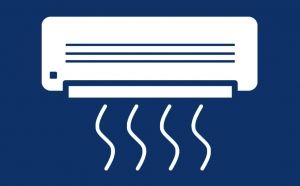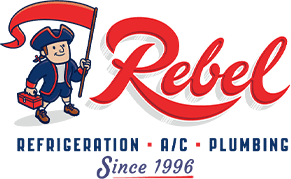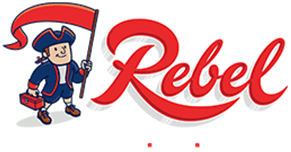From the roasting summer heat to the bizarre winter snowy days in Las Vegas, indoor temperatures can fluctuate, making it awfully unbearable to live or work comfortably at times.The weather in Las Vegas can reach over 100 degrees during the peak of summer causing HVAC systems to operate at a huge strain. It is also during these moments when they work their hardest. Many times, if they are not in tip-top shape, they can break down much easier and faster.

Cheap, low quality, and poorly installed HVAC units sometimes barely survive these grisly seasons. Worst of all, a system can potentially come to a halt without any prior warnings or signs. The possible causes for such issues can range from poor installation and low-quality workmanship to the use of cheap HVAC equipment.
When it comes to your home, this is your castle and your safe haven. Typically, the most lucrative investment in your life is your home. With correct installation, an air conditioning system will function as expected and perform optimally at standard levels. A personal investment in an air conditioning unit is no more than two times in your lifetime. By paying the right price and working with the right people, it is guaranteed to last 15 to 20 years down the road.
Proper installation leads to:
Better Efficiency
A poorly installed HVAC system is more likely to experience up to 30% reduction in efficiency levels. Most HVAC manufacturers provide specifications on how air conditioning units should be installed for optimal performance. However, if the unit is installed improperly, it can have a significant impact on the performance despite having high HSPF (heat pump efficiency), SEER (seasonal energy efficiency ratio), EER (energy efficiency ratio), and AFUE (annual fuel utilization efficiency) ratings. The impact may also extend to higher energy consumption which will cause homeowners to see an increase in monthly bills.
Longer Service Life
Over time, the technology utilized in HVAC systems has improved drastically. With the use of better quality materials, homeowners can expect their air conditioning units to last longer with little maintenance or repair needed. A unit that is poorly installed has higher chances of failing, breaking down, or malfunctioning earlier. When an HVAC system is forced to overwork, it leads to the consumption of excess power which can cause the unit to wear out more quickly. Most HVAC units are expected to last for a minimum of 15 to 20 years however, even with proper maintenance and tune-ups, poorly installed systems are at a greater risk of experiencing problems early on. In fact, there is a high possibility that it can last for only half of the lifespan of a properly installed unit causing you to replace it and having to spend more money than necessary.
Stress-Free and Streamlined Maintenance
Heavy-duty maintenance is not only costly but also comes with a considerable amount of pricey inconveniences. Many HVAC contractors will charge an initial fee for the service followed by an hourly rate when conducting routine maintenance. When you have a unit that needs constant repair or frequent tune-ups, it can start to add up. By investing in a trustworthy and reputable contractor that properly installs it right the first time, it can offset these costly maintenance fees down the road.
Better Indoor Air Quality (IAQ)
Even if you don’t have respiratory issues, living or working in an enclosed space with pollutant-laden air can be detrimental to your health. Poor indoor air quality can lead to conditions such as asthma and allergy. It can also trigger other long-term respiratory health concerns.
Some of the most costly common missteps that happen during installation can include:
- Poor positioning of the equipment
- Selecting the incorrect HVAC unit size
- Ignoring ventilation
- Overlooking air flow
- Neglecting sealing and insulation
- Low-quality workmanship
Proper Positioning of HVAC Systems
Proper evaluation should be done to determine the best location to install an HVAC system in your home. When the “supply” and “return” are located too close, it causes a problem called short-circuiting. Short-circuiting means cool air that is delivered from the “supply” will be drawn right back through the “return” before it synthesizes with the air inside. The unit will ultimately fail to perform the intended function because hot indoor air will not be cooled and cool indoor air will not be heated properly.
Poor air supply and return duct positions can cause severe damages and a negative impact on the efficiency of the system. Air-starved units can also be dangerous to home occupants especially when the unit is intended to bring in fresh air to places like basements or where exhaust fans are located.
If return ducts are placed outside, it can be detrimental to both the occupants and the system itself. In fact, it can make the indoor temperatures inconsistent even while the heating unit is functioning.
Selecting the Correct HVAC Unit Size
Many homeowners lack understanding in HVAC systems, which is why there are professionals like us to educate and provide the best advice. This is exceptionally important when it comes to selecting the right size of unit for a home, office, or commercial space. There is no one-size-fits-all HVAC system and it pays to ensure that you get the size of the unit that matches your home’s heating and cooling needs.
Selecting a unit that is too small for your home will cause it to work harder than it was built for, which often results in hiked energy bills, poor indoor air quality, and an uncomfortable home. Worst of all, the lifespan of the unit can be compromised, causing you to spend more money to repair or even replace the entire unit. On the other hand, choosing a unit that is too big will mean that you will have to pay more for what you don’t need. Oversizing can also lead to a rise in humidity levels in your home. It is essential that you seek professional advice to help you make smarter decisions for your home and an improved quality of life.
Level of Ventilation
Ventilation has a significant impact on the efficiency of an HVAC system. A home that has poor ventilation can lead to damages in the air conditioning unit and lead to a decline in indoor air quality. Before installing an air conditioner, you should consider adding adequate ventilation to your home to improve the functionality of the unit. A prominent and professional contractor can consult you on these types of options for your home.
Air Flow
All HVAC systems require unobstructed air flow to function optimally. Restricting or blocking air flow can cause a heavy strain on the unit which can limit its ability to cool or heat a home. The rate of wear and tear on the system is also heightened. Among the possible causes of restricted airflow, some include duct breaches, malfunctioning fans, and motor and electrical faults. A problem in the duct system will tend to pull air out of the HVAC system and slow the rate of air flow. Fans blow air through the system but when the blades are damaged or compromised, the air passage is also affected. The level of air flow should be given top priority when installing HVAC systems because all potential obstacles and faults must be taken into consideration.
Insulation and Sealing
Leakages can allow air to escape from the system and can affect the operation efficiency of an HVAC unit. Proper sealing and insulation should be completed during the initial installation. Although locating air leaks in HVAC systems can be time intensive, it is worth it as it eliminates costly repairs in the long run.
Some of the methods that we use to find air leaks include blower door testing which involves the use of a large fan to pull air out of a closed home. A duct leakage detector is another method that involves blowing air into the HVAC duct system after sealing all the registers and returns. By doing this, it can help identify leaks by measuring the differences in pressure.
Leaks in air handlers are easy to pinpoint because you can see, feel, or hear them. Apart from air filters, leaks are also very common around improper fitting cover panels, especially ones that do not have screws to keep the panels tight and secure. By covering the panels with tape or liquid mastic, it can improve insulation. Leaking can also be found around drive connections and s-cleats, which can easily be sealed using duct sealers.
A homeowner may sometimes think they have a great working HVAC system but there may be unexpected surprises hidden such as leaky ducts which can affect indoor air quality. Due to constant heating and cooling, the connections in the duct system are forced to expand and contract. With time, the connections can open and leak if they are not sealed properly. When more air is lost through a leaking duct, the rate of efficiency in heating and cooling decreases.
Signs that show there is a problem in duct work:
Poor Comfort Level
A home that is stuffy or too hard to cool is an indication of a low-quality functioning duct system. The cause of this can be poor workmanship in the duct connections or simply a fault in the system. Leaking ducts often waste air by flowing outside when it should be kept inside.
Increasing Bills
If the costs of heating and cooling are rising, there could be an indication of a problem in the duct work. Leaking ducts will unnecessarily raise energy bills because of inefficient running systems.
Dusty Home
Collapsed, leaky, and broken duct systems will needlessly pick up fine particles and distribute them indoors. When this happens, it leads to a build-up of excess dust in your home. A home that is overly dusty can mean there is a duct work issue.
Dangerous Backdrafting
Backdrafting is perilous and can significantly reduce indoor air quality. A home that has ventilated appliances like a dryer, water heater, and gas furnace often experience an accumulation of fumes that need to be expelled outdoors. An HVAC system that isn’t functioning properly will tend to pull these fumes back into the home. The issue often arises due to poor or leaky ducts which can be dangerous to occupants of your home.
Highest Level of Workmanship
When you take all these factors into consideration and the costs that go into an HVAC system, the best thing you can do for your home and your family is to find the right contractor. There is a universal truth to the saying, “You get what you pay for”. When it comes to your home, it should not be comprised with lower quality and comfort of life.
There are three constituents that you usually get with HVAC contractors: the best price, the best equipment, and the best installation. If you are lucky and find the right contractor, you may get two out of the three. It is highly unlikely that a contractor can offer all three because something has to give. Often times, the lowest price is not the most beneficial. You are sacrificing the foundation and core of the system, which is equipment and installation. Regardless of the type, model, and size of an HVAC unit, quality installation from reliable and esteemed professionals are paramount to maximizing the life of your HVAC system.
Why Us?
At Rebel Refrigeration, we are HVAC experts that have serviced the Las Vegas area for over a decade. From the installation to the repair and maintenance of HVAC systems, we take pride in our work and foster a trusting relationship with our customers. Our services are priced above average in town, however, we offer premium quality work with more value and bang for your buck. With unique membership benefits like extended warranties, we aim to not only meet but exceed our customer’s satisfaction.
We emphasize quality service from the moment a customer makes contact with us to the completion of the service. Our HVAC technicians are highly skilled, experienced and most importantly, friendly. When we assess a service call, a quote is the last thing that we provide. We believe that your money is not our top priority. The value we bring through delivering quality work is what’s important to us because your family is our family.


